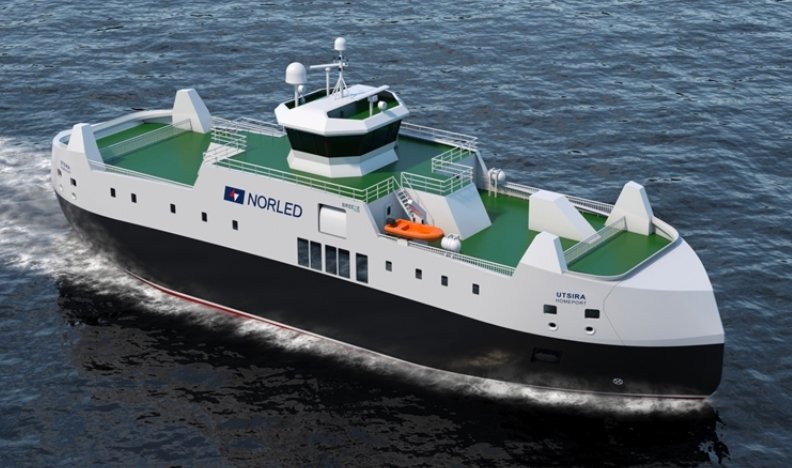ABB has secured a key contract to equip seven all-electric double-ended ferries with advanced power systems for Scotland’s Caledonian Maritime Assets. These vessels will boost connectivity in the Clyde and Hebrides regions while cutting emissions through cutting-edge technology from the global leader in electrification.
Project Details and Timeline
The deal involves Remontowa Shipbuilding in Poland building the ferries for CMAL. Delivery starts in late 2027 and wraps up by early 2029. These boats will handle nine routes along Scotland’s west coast serving island communities that rely on reliable transport.
This initiative falls under CMAL’s Small Vessel Replacement Programme. The goal is to update the aging fleet and modernize terminal facilities. The Scottish Government co-funds the project as part of wider UK pushes to green up maritime travel.
Experts praise the choice of partners. Remontowa’s commerce director noted the value of ABB’s skills in power and propulsion. This collaboration promises smooth operations and long-term savings for operators.

Advanced Technology Onboard and Ashore
ABB supplies its Compact Onboard DC Grid system for power distribution and propulsion. This setup allows efficient energy use and supports zero-emission voyages. The ferries can plug into shore power at docks eliminating the need for idling engines.
Shore infrastructure comes next with installations at key terminals. Work begins at Kennacraig and Port Askaig then expands to others. This setup lets vessels draw clean electricity from the grid while berthed.
The technology shines in reliability. It handles varying loads during crossings and ensures quick charging. Operators expect lower maintenance costs over time compared to diesel alternatives.
- Key features of ABB’s system include flexible power management for hybrid operations if needed.
- Integration with battery storage maximizes range on longer routes.
- Digital controls monitor performance in real time to prevent issues.
Environmental Benefits and Emissions Cuts
Switching to all-electric ferries tackles a big challenge in Scotland’s transport sector. Domestic ferries account for about 1.7 percent of total transport emissions nationwide. These new vessels aim to slash that figure by running on batteries powered by renewable sources.
The impact goes beyond carbon dioxide. Noise levels drop sharply in ports improving life for nearby residents. Air quality improves too with no exhaust fumes during docking. Over the lifetime of these ferries experts project reductions of thousands of tonnes in CO2.
Scotland leads in green maritime shifts. Recent projects like hybrid ferries have already cut fuel use and emissions by over 5,500 tonnes per vessel. This order builds on that success avoiding past hiccups seen in some LNG trials that underperformed on eco goals.
| Aspect | Traditional Diesel Ferries | All-Electric ABB Ferries |
|---|---|---|
| CO2 Emissions | High during operation and idling | Near zero with shore power |
| Noise Pollution | Significant in ports | Minimal for quieter harbors |
| Fuel Costs | Volatile and rising | Lower with electricity tariffs |
| Maintenance | Frequent engine repairs | Reduced with electric systems |
Broader Impact on Scottish Islands
Island life in the Hebrides depends on these ferries for goods people and services. Better vessels mean fewer delays and safer trips in rough waters. Communities stand to gain from fresher produce and faster medical access.
The project ties into national trends. Scotland invests heavily in renewables like wind and hydro to fuel such initiatives. It creates jobs in shipbuilding and tech installation across the UK and Poland.
Challenges remain like building charging networks in remote areas. Yet progress here inspires similar moves elsewhere. For instance recent electric ferry trials in Norway show scalable models that Scotland can adapt.
Looking Ahead to Green Maritime Future
As deliveries approach CMAL plans trials to ensure seamless integration. Full rollout by 2029 could transform west coast travel. This step aligns with global calls for net-zero shipping by mid-century.
Readers interested in sustainable transport should watch for updates on these ferries. Share your thoughts on electric vessels in comments below and spread the word about Scotland’s eco push.


















